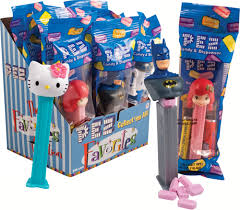The Business Model of Free POS
The business model behind free POS systems is common to many industries: free equipment to encourage sales for the company’s core business.
- Stamps.com gives away a postage scale as an incentive to purchase postage.
- HP sells printers at very low prices, to support their profitable ink and toner business.
- PEZ gives away (or sells for pennies) dispensers to support the core business of candies.
It’s a solid, well-tested model for many businesses. But does it translate to POS?
At the risk of over-generalization, let’s take a look and see.
The Core Business of Free POS
The core business of free POS companies is, generally speaking, payment processing. For them, POS is like PEZ: they give it away to lock you in to a long-term processing agreement—sometimes as long as five years. They have to do that: in order to give away product and still make money, they have to process a ton of fees for each customer. A lot can happen in three to five years. Transaction fees can go up. Terms and conditions can change. Your business might grow and you find the system isn’t good enough to grow with you. No matter: you belong to them until the contract ends.
The Price of Free POS
One vendor’s web site really makes the case that nothing’s free. The title of their web page is “Free POS System.” One of the home page menu items is “Price Quote.” Isn’t it free? No: there are other charges and other fees. Generally, these can include security fees, support fees, warranty fees, subscription fees and others. There’s nothing wrong with fees—if you don’t call the system free. But fees can add thousands of dollars over the course of the locked-in contract, depending on your configuration, the number of free systems you pay for, and any price changes the vendor makes over the life of the contract.
There’s one other fee: let’s call it the “lockdown fee”: it’s the penalty you pay if you cancel the contract before the five years is up. One vendor’s Terms and Conditions call for an early termination penalty of the greater of either $250 or $35 times the number of months remaining on the contract.
The Sellers of Free POS
Generally, free systems are sold through the channel. Established POS vendors (that includes Maitre'D and our competitors) also sell through the channel, using certified, trained resellers. Free POS systems more often use the Independent Sales Organization model—which is much less quality controlled and discriminating. Consider this. Micros (recently acquired by Oracle) lists 209 sales offices for its system: many of which are Oracle offices. We’ve got over 100. The most visible entrant in the free space boasts over 3500 Independent Sales Offices. I’ll just leave you a question to answer here. Are they just better at recruiting, or do they have a greater market share, than Micros or Maitre'D? Or are they just accepting anyone who’s solvent and without felony convictions?
The Innovations of Free POS
The free sellers use the same Innovation Strategy as other “knockoff” manufacturers in other industries (fashion and food leap to mind). Wait until the mainstream companies make something, and then eventually copy it. It’s unavoidable. Those companies don’t have the resources or the talent to be deep into R&D. They watch and see what we do and then they replicate it. You can see this for yourself: look at the features Maitre'D provides (or any of our competitors for that matter). Then compare it to the free vendors. You’ll see that free companies lag behind us by a year or more.
The Buzz about Free POS
Finally, check out what customers say online. Search for +posname +reviews. Now, make it fair: we all know that people generally go online to complain not to praise, and no product makes everybody happy. But check it out anyway (while you’re there check out Maitre'D and our mainstream competitors too).
I don’t speak Latin, but the phrase caveat emptor is well known—literally it means, “buyer beware.” There’s an alternative, but equally accurate, translation of the idiom that applies to free POS systems:
You get what you pay for.
If you liked this article, we welcome you to read our previous post on used POS systems.


